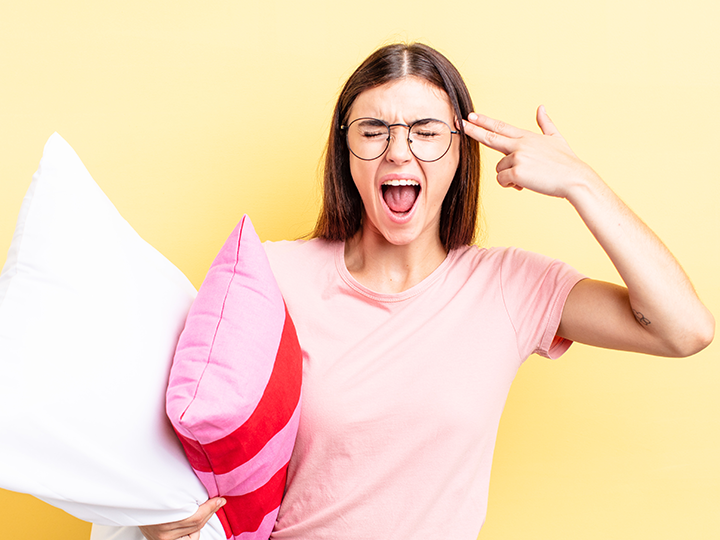
Why can't I sleep in the summer?
Not only the heat, but also the change in our rhythm affects our capacity to sleep in summer nights.
The summer months are tough for many of us. During the day, we get tired several times more than normal due to the heat and humidity, and we cannot rest at night due to the same reason. Experts summarize the issue under three headings.
1- Extremely hot weather
The ideal temperature for us to sleep comfortably is about 18 degrees Celsius. This warmth, where we can almost feel cold, supports the body's natural heat balance and facilitates the transition to sleep. Because our circadian rhythm cares so much about temperature, this is why we sometimes feel cold when we feel very tired. When the air temperature does not decrease at night and our body cannot cool down, we have difficulty falling asleep. Taking a cool shower is also effective for improving sleep quality, as well as using air conditioning or a fan to cool the room thoroughly before going to sleep. When your body cools down for a while with the effect of cold water, the transition to sleep will be easier. To make it easier to keep the bed cool, it will be helpful to use cotton or linen bedspreads and to wear light and moisture-absorbent pajamas.
2- Longer days
Exposure to light is the most important external factor that regulates our internal biological clock or circadian rhythm. Longer days in the summer mean more exposure to light, especially in the evening, which can push bedtimes later, making it a little more difficult to fall asleep and stay asleep. Likewise, exposure to light much earlier on summer mornings can cause you to wake up earlier than you would like. Functional Medicine Practitioner Stacie J. Stephenson says lengthening days can also cause dinner time to be late, negatively impacting sleep patterns. It is possible to overcome light-related sleep problems by controlling how much light enters your bedroom. Blackout curtains or an eye patch can help you when you need a few more hours of sleep. You can create an electronic sunset to help our body rest as it needs in the dark, when you turn off all your devices and sit in dim light in the evening, and when you keep your dinners at the same time as possible, you give your body the opportunity to adapt to summer nights. In particular, Stephenson says, there should be at least two hours between the last bite and bedtime: “so your body can dedicate energy to repair and restoration rather than digestion while you sleep.”
3- Changing lifestyle
On hot and sunny days in summer, we become more extroverted. We spend more time outside and with people, sacrificing our reading time for a late drink. While this is good for our social life, it can negatively affect our sleep patterns by changing our sleep-wake patterns. Alcohol intake, in particular, can disrupt REM sleep. Stephenson states that alcohol makes it easier for us to fall asleep faster in the first half of the night, but it often impairs sleep quality in the second half of the night. Keeping bed and wake times as consistent as possible will improve our ability to fall asleep and stay asleep longer. If your sleep problem persists despite all the precautions you take, it may be a good idea to consult your doctor to see if you need any vitamin or mineral supplements.
